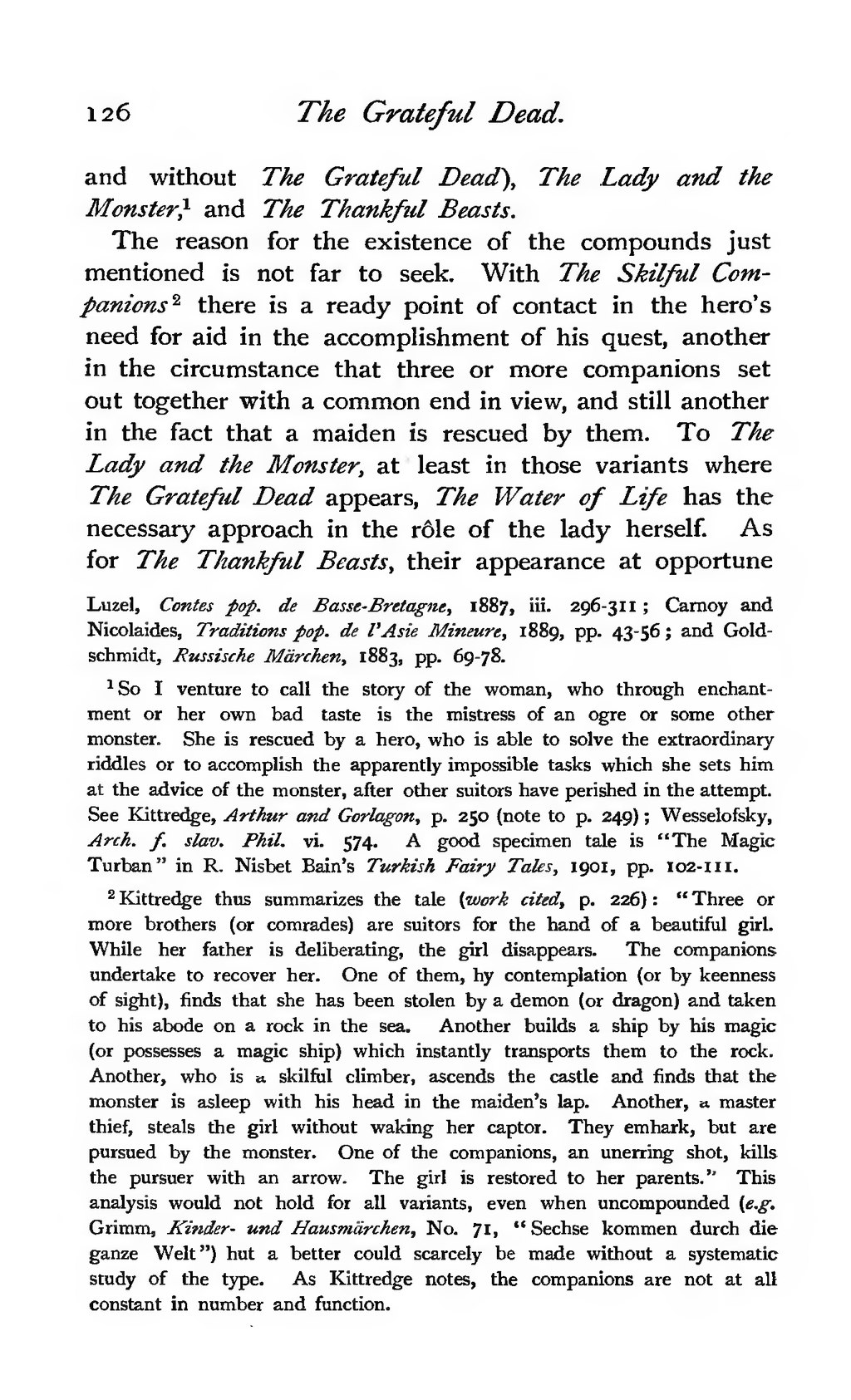and without The Grateful Dead), The Lady and the Monster[1] and The Thankful Beasts.
The reason for the existence of the compounds just mentioned is not far to seek. With The Skilful Companions[2] there is a ready point of contact in the hero's need for aid in the accomplishment of his quest, another in the circumstance that three or more companions set out together with a common end in view, and still another in the fact that a maiden is rescued by them. To The Lady and the Monster, at ' least in those variants where The Grateful Dead appears. The Water of Life has the necessary approach in the rôle of the lady herself. As for The Thankful Beasts, their appearance at opportune
- ↑ So I venture to call the story of the woman, who through enchantment or her own bad taste is the mistress of an ogre or some other monster. She is rescued by a hero, who is able to solve the extraordinary riddles or to accomplish the apparently impossible tasks which she sets him at the advice of the monster, after other suitors have perished in the attempt. See Kittredge, Arthur and Gorlagon, p. 250 (note to p. 249); Wesselofsky, Arch. f. Slav. Phil. vi. 574. A good specimen tale is "The Magic Turban" in R. Nisbet Bain's Turkish Fairy Tales, 1901, pp. 102-111.
- ↑ Kittredge thus summarizes the tale (work cited, p. 226): "Three or more brothers (or comrades) are suitors for the hand of a beautiful girl. While her father is deliberating, the girl disappears. The companions undertake to recover her. One of them, by contemplation (or by keenness of sight), finds that she has been stolen by a demon (or dragon) and taken to his abode on a rock in the sea. Another builds a ship by his magic (or possesses a magic ship) which instantly transports them to the rock. Another, who is a skilful climber, ascends the castle and finds that the monster is asleep with his head in the maiden's lap. Another, a master thief, steals the girl without waking her captor. They embark, but are pursued by the monster. One of the companions, an unerring shot, kills the pursuer with an arrow. The girl is restored to her parents." This analysis would not hold for all variants, even when uncompounded (e.g. Grimm, Kinder- und Hausmärchen, No. 71, "Sechse kommen durch die ganze Welt") but a better could scarcely be made without a systematic study of the type. As Kittredge notes, the companions are not at all constant in number and function.
Luzel, Contes pop. de Basse-Bretagne, 1887, iii. 296-311; Camoy and Nicolaides, Traditions pop. de l'Asie Mineure, 1889, pp. 43-56; and Goldschmidt, Russische Märchen, 1883, pp. 69-78.
